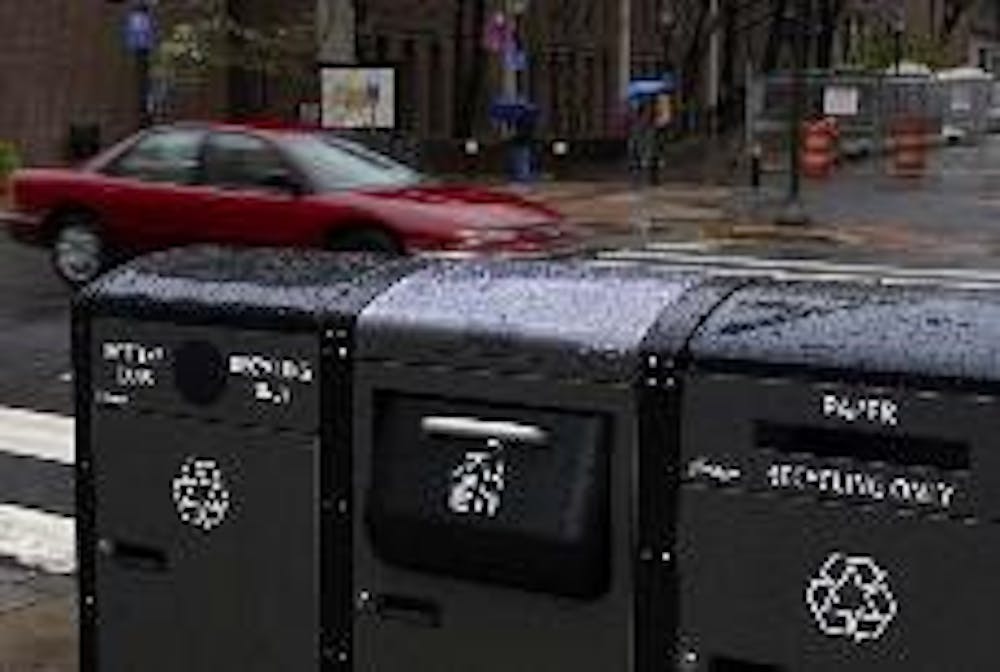"Big Bellies" aren't easily filled - at least when it comes to trash.
Facilities and Real Estate Services has installed Big Bellies - energy efficient, solar-powered trash and recycling compactors - outside the Penn Bookstore and the Wawa at 38th and Spruce streets, and within the next week, five more machines will be installed along Spruce and Walnut streets.
"The Big Bellies are different from usual trash cans because they look like book depositors or mailboxes," Sustainability Coordinator Dan Garofalo said.
"The great thing about them is that they need to be emptied six times less frequently," he said, explaining that Penn employees can work on other jobs around campus instead of emptying the trash as often as in past.
"The time of our men is an important asset to us, and we want to make the most of it," he said.
Though the compactors cost upwards of $4,000, they were chosen over regular trash cans since FRES's utility budget had an excess of between $100,000 and $200,000.
Garofalo said the extra funding resulted from the University's previous successful initiatives that increased efficiency.
Penn Environmental Group co-chairwoman and College sophomore Jenna Stahl said the Big Bellies are "neat because they will remind people of Wall-E."
However, she added that "while the environmental benefits are there, they seem miniscule compared to other things that are being done on campus."
Garofalo also noted that the machines cannot be installed "on Locust Walk or anywhere else in the heart of campus because they look very industrial."
But, Stahl said, not putting the compactors in central locations on campus would probably mean that they would not get used enough to make a difference.
Alternatively, College freshman Laura Lee said even if located on the outskirts of campus, the trash compactors will be helpful, though maybe less than they would be at more central locations on campus.
"Walking around campus, you see a lot of overflowing trash cans," Lee said. "A trash compactor would be really helpful."
Garofalo said it is hard to tell to what degree the Big Bellies will benefit Penn.
Still, the project is just one of many intended to increase Penn's efforts to protect the environment.
To help improve sustainable behavior on campus, FRES director of operations Ken Ogawa has also hired a group of consultants, Garofalo explained.
"Now, the only thing we have left to do is to force people at gunpoint to do the right thing," he joked.
Related StoriesThe sunnier side of Philly's trash - News



